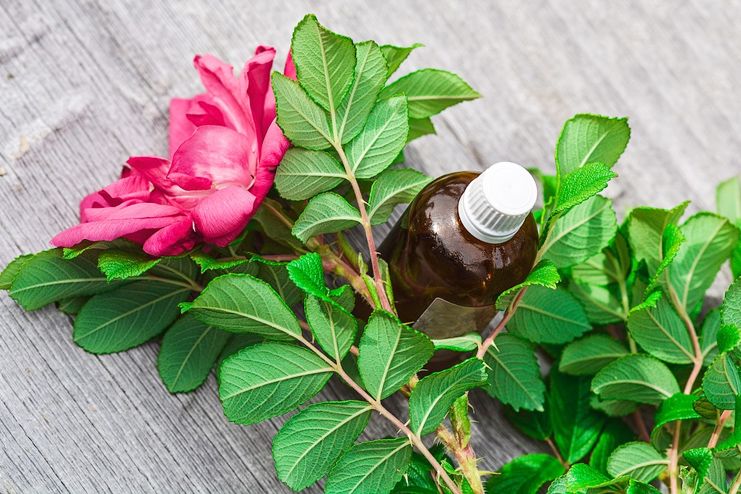Affiliate Disclaimer
Some links in this article are affiliate links. We may earn a small commission if you make a purchase through these links, at no extra cost to you. We only recommend products we find useful to our readersChest congestion is a very frustrating and uncomfortable condition. It is often accompanied by a persistent cough and a feeling of tightness in the chest. Over-the-counter medications can help, but many people seek relief through natural remedies.
From soothing teas to effective oils, these home remedies can ease symptoms and provide comfort without harsh chemicals.
Here are 19 home remedies that you can use to clear chest congestion and breathe freely.
Home Remedies for Chest Congestion
Dealing with chest congestion can be exhausting. Constant coughing and tightness in the chest often lead to persistent discomfort that’s difficult to shake off. However, natural remedies can help relieve and ease chest congestion effectively.
- Apple Cider Vinegar
- Coconut Oil
- Honey
- Heating Pad
- Avoid Smoking
- Salt Water Gargle
- Lemon
- Bay Leaves
- Mustard Plaster
- Epsom Salt Bath
- Pineapple Juice Soothe
- Black Coffee
- Humidifier
- Essential Oils
- Best Teas for Chest Congestion
- Cayenne Pepper
- Garlic
- Onion
- Turmeric
1. Apple Cider Vinegar
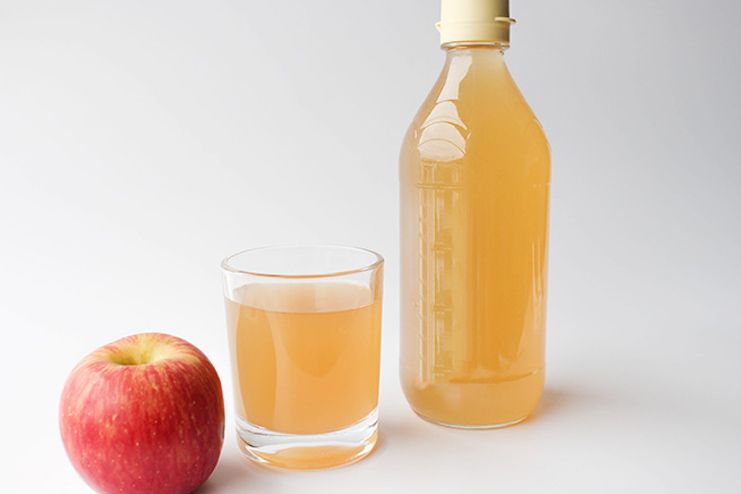
Apple cider vinegar is an excellent remedy for chest congestion. It helps break down and thin the mucus accumulation in the chest, making breathing easier. Additionally, it strengthens the immune system, which can help prevent chest congestion in the future.
Method:
- Mix one tablespoon of raw apple cider vinegar into a glass of water.
- Add a teaspoon of honey to balance the intense flavor.
- Drink this mixture twice daily until the symptoms subside.
2. Coconut Oil
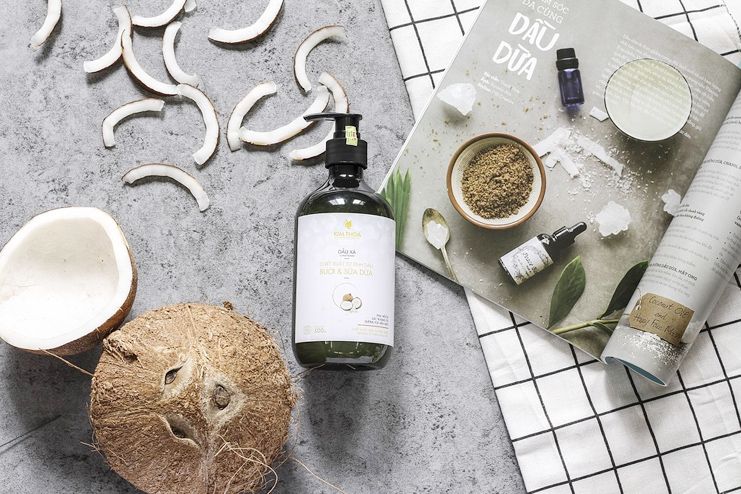 One of the most common symptoms of chest congestion is a blocked nose and airway. This can be effectively relieved using a DIY vapor rub. The essential oils help clear the nasal passages, while massaging with coconut oil warms the chest area, aiding in loosening and expelling accumulated mucus.
One of the most common symptoms of chest congestion is a blocked nose and airway. This can be effectively relieved using a DIY vapor rub. The essential oils help clear the nasal passages, while massaging with coconut oil warms the chest area, aiding in loosening and expelling accumulated mucus.
Method:
- Mix one drop of peppermint and eucalyptus oil with a bowl of coconut oil.
- Apply the mixture to your chest and massage it gently.
- Repeat this three to four times a day, especially before bedtime.
3. Honey
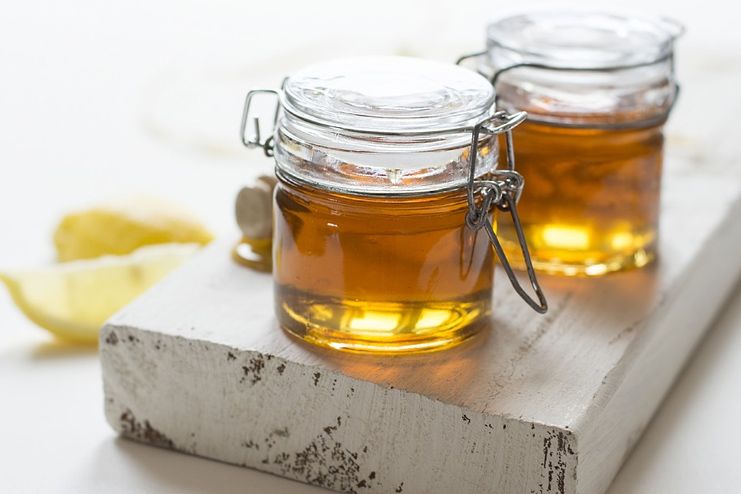 Honey is an excellent remedy for treating chest congestion. It helps thin out mucus buildup in the chest and is packed with powerful antiviral and antibacterial properties, effectively combating congestion-associated infections.
Honey is an excellent remedy for treating chest congestion. It helps thin out mucus buildup in the chest and is packed with powerful antiviral and antibacterial properties, effectively combating congestion-associated infections.
How to Use Honey for Chest Congestion Relief:
- Direct Consumption: Eat one tablespoon of honey in the morning.
- Honey with Warm Water: Mix one tablespoon of honey into a glass of warm water and drink it every morning until the congestion subsides.
- Honey and Black Pepper Paste: Combine one teaspoon of honey with one teaspoon of black pepper to form a smooth, dough-like paste. Consume this mixture two to three times daily for effective relief.
4. Heating Pad

For individuals who find steaming suffocating, non-invasive treatments like using a heating pad can provide effective relief for chest congestion. A heating pad offers a soothing warmth that helps break down mucus buildup in the chest cavity and lungs, promoting its expulsion and easing discomfort.
How to Use a Heating Pad for Chest Congestion Relief:
- Electric Heating Pad:
- Place the electric heating pad over your chest.
- Adjust the temperature to a comfortable, bearable level.
- Water-Based Heating Pad:
- Warm some water and fill the heating pad.
- Place it over your chest until you feel relief as your nasal and respiratory pathways begin to clear.
Repeat the process several times daily to maintain relief and improve mucus drainage.
5. Avoid Smoking

As mentioned earlier in the causes section, one of the causes of chest congestion is bronchitis, with chronic bronchitis being primarily caused by prolonged smoking.
If you’re seeking remedies for chest congestion, quitting smoking is arguably one of the most effective steps you can take. Inhaled smoke aggravates lung conditions, making the situation worse. Therefore, one of the most beneficial and convenient ways to relieve chest congestion is to quit smoking once and for all.
6. Salt Water Gargle
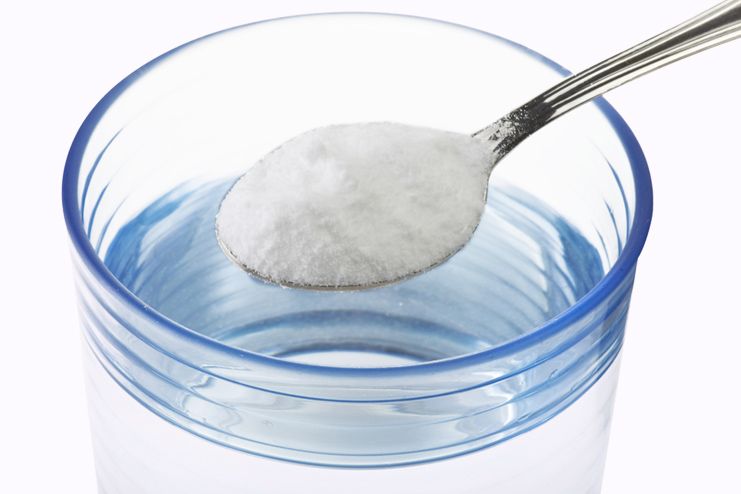
Saltwater is one of the most commonly used natural remedies for chest congestion. The combination of salt and warm water has a dual effect on treating chest congestion. Gargling with salt water can help relieve chest congestion and speed up recovery.
The salt in the solution helps break down mucus buildup, while the warm water soothes the throat.
Method:
- Mix one teaspoon of salt into a glass of warm water.
- Stir it well until the salt completely dissolves.
- Gargle with this solution at least twice a day until the symptoms subside.
Read More Health Benefits of Salt Water Gargle
7. Lemon
 Lemon is also an effective natural remedy for treating chest congestion. Rich in vitamin C, it helps break down mucus buildup, thereby relieving the tightness around the chest. Additionally, its antioxidant and antibacterial properties help boost immunity, providing an added benefit.
Lemon is also an effective natural remedy for treating chest congestion. Rich in vitamin C, it helps break down mucus buildup, thereby relieving the tightness around the chest. Additionally, its antioxidant and antibacterial properties help boost immunity, providing an added benefit.
Here are the methods you can try:
Method 1:
- Mix one tablespoon of lemon juice into a glass of lukewarm water.
- Drink this solution twice or thrice a day.
Method 2:
- Grate the zest of a lemon and add it to a pot of boiling water.
- Let the water brew and sit for 10 minutes.
- Sip this mixture twice or thrice a day.
8. Bay Leaves
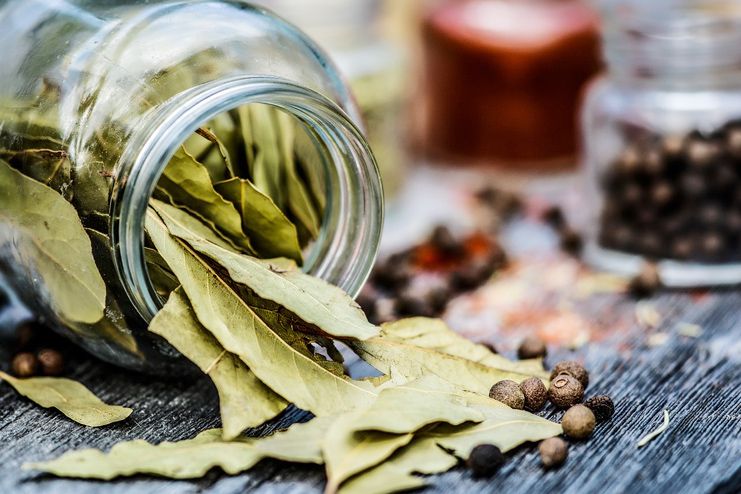 For reasons not fully understood, bay leaves are considered an effective remedy for chest congestion. It is believed that bay leaves have medicinal properties that help alleviate the symptoms associated with chest congestion.
For reasons not fully understood, bay leaves are considered an effective remedy for chest congestion. It is believed that bay leaves have medicinal properties that help alleviate the symptoms associated with chest congestion.
Method:
- Wash fresh bay leaves thoroughly under running water.
- Boil a saucepan of water and add the bay leaves.
- Let it steep for 10 minutes.
- Strain the liquid and drink it twice or thrice a day.
9. Mustard Plaster
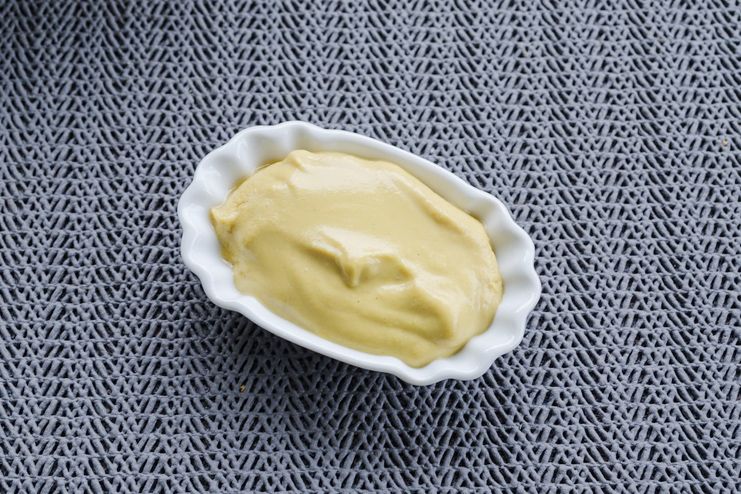 Mustard plaster is an ordinary, spreadable paste used to treat chest congestion. The pungency and humidifying properties of mustard help break down the congestion in the chest, relieving the individual.
Mustard plaster is an ordinary, spreadable paste used to treat chest congestion. The pungency and humidifying properties of mustard help break down the congestion in the chest, relieving the individual.
Method:
- Use a mustard plaster available over the counter and apply it to the chest until the congestion eases.
- To make a mustard plaster at home, mix one cup of flour, two tablespoons of mustard powder, and hot water to form a smooth paste. Spread the paste on a towel and apply it to the chest to relieve chest congestion.
10. Epsom Salt Bath

Epsom salt baths are one of the most beneficial natural remedies for chest congestion. They help alleviate the signs and symptoms of chest congestion, including the discomfort and pain that often accompany it. Soaking in an Epsom salt bath helps break down mucus around the chest and improves blood circulation.
Method:
- Fill a bathtub with warm water.
- Add a few tablespoons of Epsom salt to the water.
- Soak in the water for 15-20 minutes.
- Repeat this process until the congestion symptoms are relieved.
11. Pineapple Juice
 The remedy involving pineapple juice combined with honey, ginger, and cayenne pepper is highly beneficial for chest congestion. The combination of pineapple and cayenne pepper helps relieve the mucus deposited in the chest. Meanwhile, ginger and honey provide a soothing sensation to the throat.
The remedy involving pineapple juice combined with honey, ginger, and cayenne pepper is highly beneficial for chest congestion. The combination of pineapple and cayenne pepper helps relieve the mucus deposited in the chest. Meanwhile, ginger and honey provide a soothing sensation to the throat.
Method:
- Add half a teaspoon of honey and ginger juice to a glass of pineapple juice.
- Add a pinch of cayenne pepper to the mixture and stir everything together.
- Drink this juice once or twice daily until you get relief from chest congestion.
12. Black Coffee
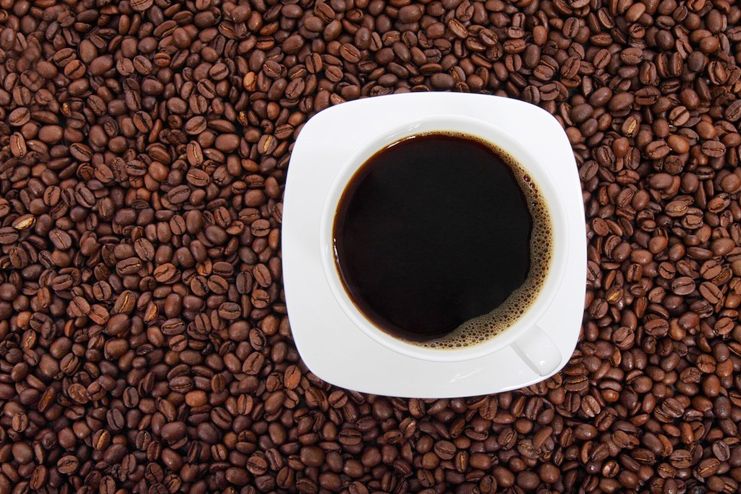 Black coffee is often chosen as a temporary remedy for relieving chest congestion. The components in black coffee help treat the symptoms of chest congestion and assist in dissolving the mucus that causes the issue in the first place. It clears the air passages and promotes normal breathing.
Black coffee is often chosen as a temporary remedy for relieving chest congestion. The components in black coffee help treat the symptoms of chest congestion and assist in dissolving the mucus that causes the issue in the first place. It clears the air passages and promotes normal breathing.
However, do not exceed two cups of black coffee daily, as excessive caffeine intake can adversely affect your body.
13. Humidifier

When you’re experiencing persistent symptoms of chest congestion, it’s best to use a humidifier to adjust the room temperature to a more comfortable, warm setting. Humidifiers help moisten the nasal passages, which can provide relief from chest congestion.
14. Essential Oils
1. Eucalyptus Oil
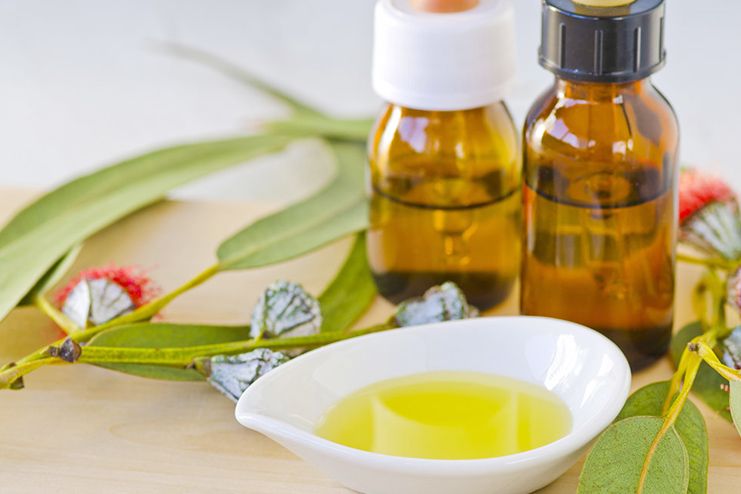
Eucalyptus oil has remarkable effects in treating chest congestion. It can be inhaled directly or used as a rub on the chest to create a warming sensation that soothes the irritation often associated with it.
Method:
- Pour a few drops of eucalyptus oil onto a handkerchief and inhale the scent to help clear blocked air passages.
- Alternatively, add a few drops of eucalyptus oil to a carrier oil and rub it onto the chest. The warming sensation helps break down mucus and provides relief from chest congestion.
2. Tea Tree Oil
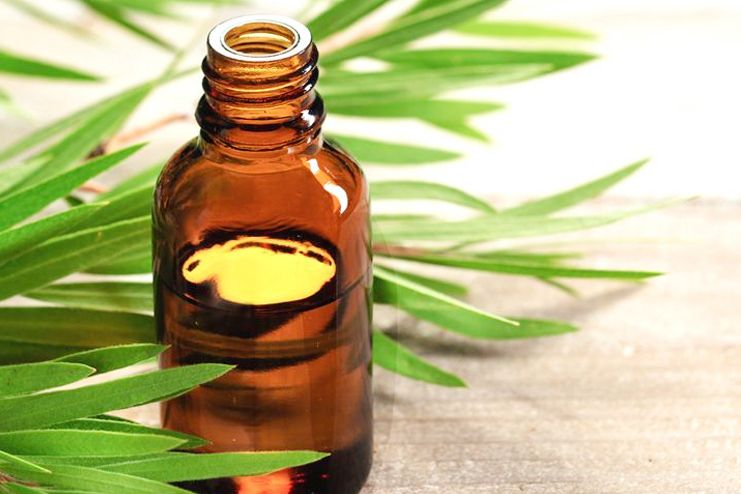
Tea tree oil is known for its exceptional expectorant properties, making it highly beneficial for treating chest congestion and blocked airways. It helps alleviate symptoms of various conditions, including chest congestion, asthma, bronchitis, and more.
Method:
- Wet a towel with warm water, wring it out, and add a few drops of tea tree oil. Place the towel over your chest until you start feeling the congestion easing.
- Alternatively, mix tea tree oil with a carrier oil and rub it onto your chest until the congestion clears.
3. Peppermint Oil
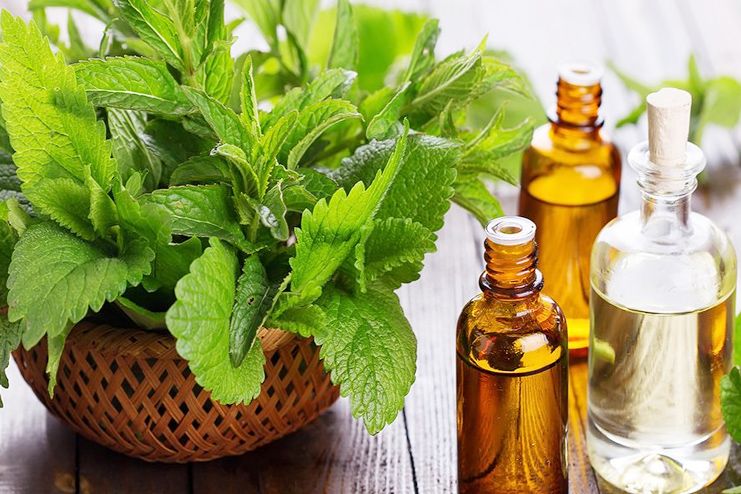
Peppermint oil’s slight pungency and menthol-like properties make it highly effective for treating chest congestion. It is primarily used as a rub and provides excellent results in relieving associated conditions like a sore throat, blocked nose, and nasal passage congestion.
Method:
- Mix a few drops of peppermint oil with a carrier oil and massage it onto your chest for a few minutes, allowing the oil to absorb into the skin.
- Repeat this process several times throughout the day for better results.
15. Herbal Teas
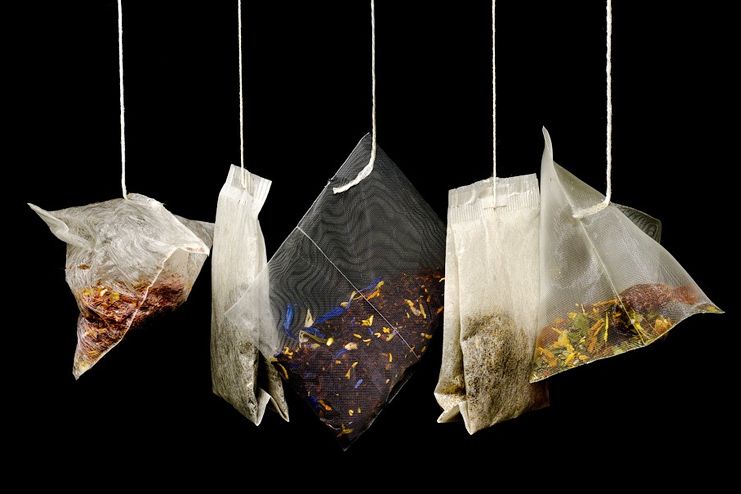 Not just essential oils and common home remedies, but a variety of teas have also shown beneficial effects in treating chest congestion. This section will focus on the common types of tea you can consume to help relieve chest congestion.
Not just essential oils and common home remedies, but a variety of teas have also shown beneficial effects in treating chest congestion. This section will focus on the common types of tea you can consume to help relieve chest congestion.
1. Green Tea
Green tea is an excellent remedy for relieving chest congestion. It is packed with natural nutrients and antioxidants that help dissolve the phlegm, blocking the air passages and making breathing easier when suffering from chest congestion.
Method:
- Boil some water in a saucepan and add green tea leaves.
- Let the tea steep for 15-20 minutes.
- Strain the leaves and drink the tea while it’s still warm.
Alternatively, you can use green tea bags if you don’t have loose leaves.
2. Ginger Tea
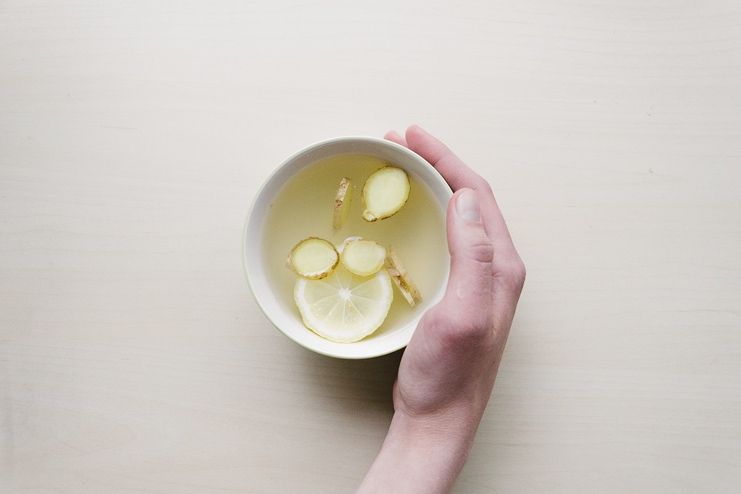 Ginger tea is rich in anti-inflammatory and antioxidant properties, making it one of the most favored natural remedies for chest congestion. The anti-inflammatory properties help reduce the inflammation that often accompanies congestion. Additionally, it helps prevent the further development of mucus on the lining of the chest and lungs.
Ginger tea is rich in anti-inflammatory and antioxidant properties, making it one of the most favored natural remedies for chest congestion. The anti-inflammatory properties help reduce the inflammation that often accompanies congestion. Additionally, it helps prevent the further development of mucus on the lining of the chest and lungs.
Method:
- Boil some water in a saucepan.
- Add regular tea leaves and let it boil until the tea is well-stepped.
- Add some crushed ginger to the tea and let it sit for about 10 minutes, allowing the flavors to infuse.
- Strain the tea and drink it twice or thrice daily.
This tea can be especially beneficial if your congestion is due to a cold or cough.
3. Thyme Tea
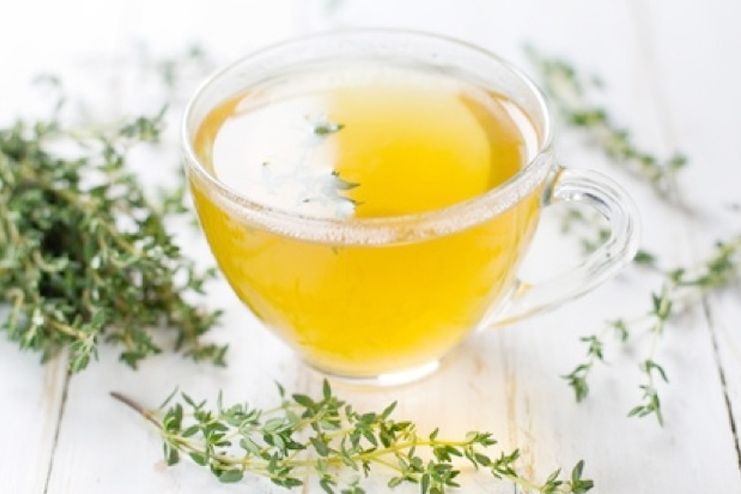
Thyme is another herb with pronounced expectorant properties that help break down mucus buildup in the chest lining. Once the mucus is dissolved correctly, it becomes much easier to find relief from chest congestion. Additionally, thyme aids in decongesting several other respiratory conditions, such as bronchitis.
Method:
- Boil some water in a kettle or saucepan.
- Add 1-2 tablespoons of thyme leaves (either dried or fresh) and cover the pot to retain the essential oils.
- Let it steep for about 10 minutes.
- Strain the liquid and add a teaspoon of honey.
- Drink this tea twice or thrice daily until the symptoms subside.
4. Fenugreek Tea
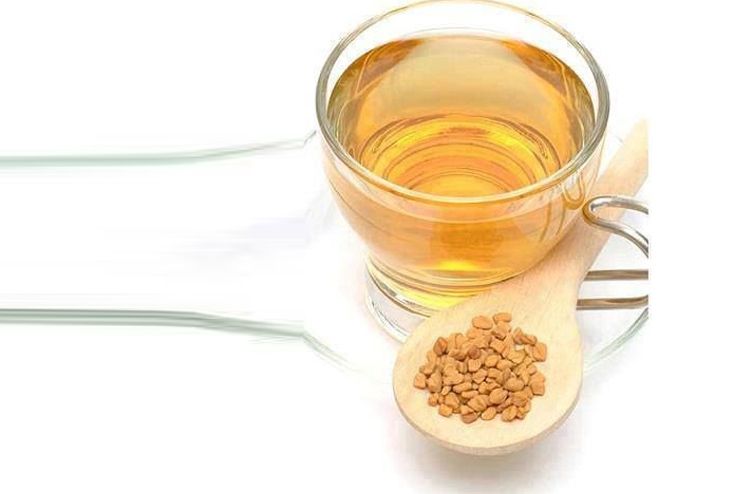
Fenugreek is rich in anti-inflammatory and antimicrobial properties, making it one of the best natural remedies for relieving chest congestion. The anti-inflammatory properties help reduce the inflammation accompanying chest congestion in the air passages, while the antimicrobial properties help eliminate the bacteria causing the infection.
Method:
- Soak a tablespoon of fenugreek seeds in a glass of water overnight.
- In the morning, strain the liquid and bring it to a boil.
- Add a teaspoon of honey to the tea and drink it twice daily until the congestion subsides.
Foods for Chest Congestion Relief

If you are unsure, let me clarify that your diet can also help relieve chest congestion. The primary focus should be avoiding foods that aggravate the congestion and worsen the situation.
To assist you in this process, we have compiled a list of foods that can help with chest congestion relief:
16. Cayenne Pepper
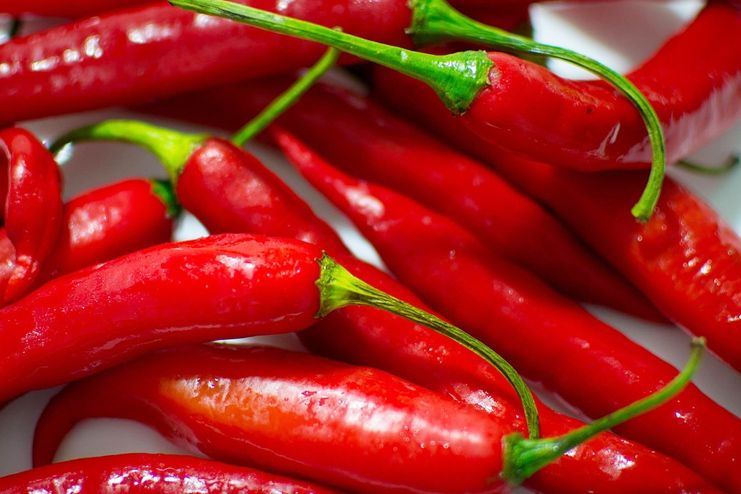 Cayenne pepper has thermogenic properties that are very helpful in loosening mucus from the chest. The warming sensation helps break down the accumulated mucus in the chest or lung lining, making it easier to expel through coughing.
Cayenne pepper has thermogenic properties that are very helpful in loosening mucus from the chest. The warming sensation helps break down the accumulated mucus in the chest or lung lining, making it easier to expel through coughing.
Method:
- Mix one teaspoon of cayenne pepper into a glass of water.
- Drink this once daily until the symptoms of chest congestion subside.
17. Garlic
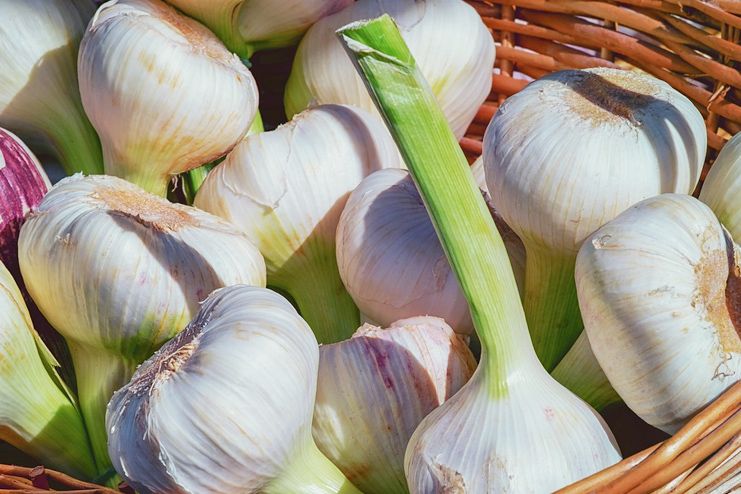 Garlic is packed with anti-inflammatory and antimicrobial properties that actively combat infection-causing microbes. It helps alleviate symptoms and provides relief from chest congestion.
Garlic is packed with anti-inflammatory and antimicrobial properties that actively combat infection-causing microbes. It helps alleviate symptoms and provides relief from chest congestion.
Method:
- Add 4-5 peeled garlic cloves to a saucepan of boiling water.
- Let it boil until the essential nutrients of the garlic are infused with the water.
- Strain the liquid and add a teaspoon of honey to mellow out the pungency of the garlic.
18. Onion
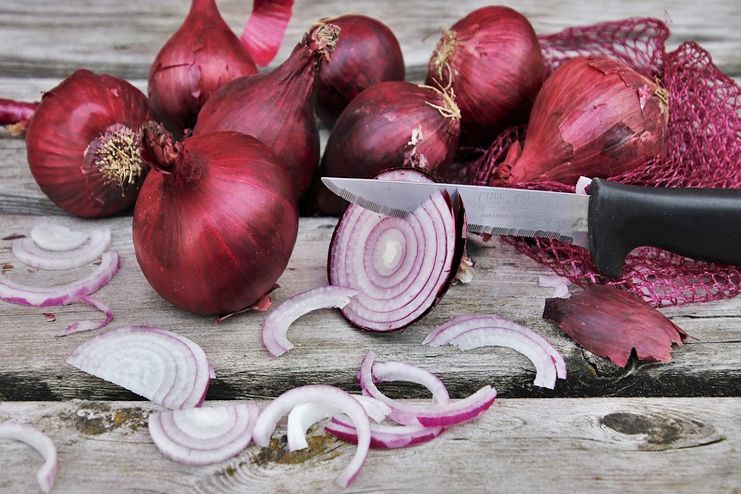 An onion poultice is one of the most popular remedies for chest congestion. It has proven effects in treating the symptoms that accompany chest congestion. The warming sensation, combined with the pungency of the onions, helps dissolve mucus in the chest, clearing the air passages.
An onion poultice is one of the most popular remedies for chest congestion. It has proven effects in treating the symptoms that accompany chest congestion. The warming sensation, combined with the pungency of the onions, helps dissolve mucus in the chest, clearing the air passages.
Method:
- Cut a few thick slices of onions and warm them for about a minute.
- Place the slices inside a towel and apply the poultice to your chest for 10 minutes.
- Repeat this twice daily until the symptoms of chest congestion subside.
19. Turmeric
 Turmeric is more than just a seasoning for curry; its remarkable medicinal benefits have potent effects in treating chest congestion. The active compound curcumin, found in turmeric, helps break down mucus buildup and clears the air passages, aiding in better breathing.
Turmeric is more than just a seasoning for curry; its remarkable medicinal benefits have potent effects in treating chest congestion. The active compound curcumin, found in turmeric, helps break down mucus buildup and clears the air passages, aiding in better breathing.
Method:
- You can either gargle with warm turmeric water to help relieve chest congestion.
- Alternatively, opt for turmeric tea or turmeric milk for similar promising results.
Foods to Avoid for Chest Congestion
As much as a healthy diet can help relieve chest congestion, there are certain foods you should avoid at all costs if you don’t want to worsen the condition further.
To make things easier, we have listed the foods you should avoid when suffering from chest congestion.
1. Milk or Dairy Products
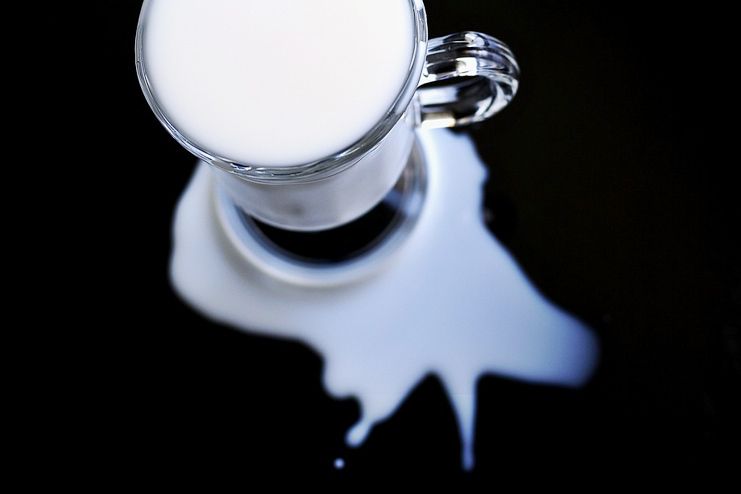 When I mention milk, I mean all dairy products. Milk and dairy contain a compound called casein, which encourages further mucus production, worsening chest congestion. Additionally, the lactose in dairy products contributes to mucus secretion, further aggravating the symptoms of chest congestion.
When I mention milk, I mean all dairy products. Milk and dairy contain a compound called casein, which encourages further mucus production, worsening chest congestion. Additionally, the lactose in dairy products contributes to mucus secretion, further aggravating the symptoms of chest congestion.
2. Animal Flesh
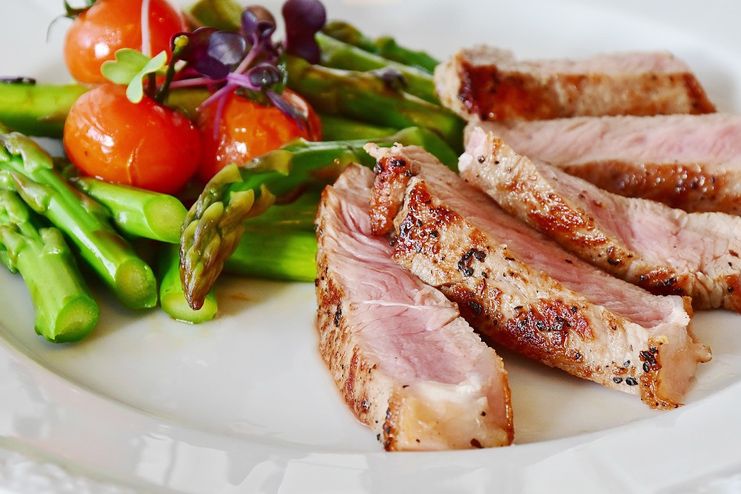 Consuming animal flesh can also worsen mucus buildup in the chest and lungs, aggravating chest congestion rather than alleviating it. To help manage the condition more effectively, it is best to avoid all forms of animal products, including meat, eggs, and fish.
Consuming animal flesh can also worsen mucus buildup in the chest and lungs, aggravating chest congestion rather than alleviating it. To help manage the condition more effectively, it is best to avoid all forms of animal products, including meat, eggs, and fish.
3. Soy
 You might be mistaken if you thought swapping dairy with soy products would be a suitable alternative. While the effects may not be as severe as regular dairy, soy products can still worsen chest congestion. It’s best to avoid them for precautionary reasons.
You might be mistaken if you thought swapping dairy with soy products would be a suitable alternative. While the effects may not be as severe as regular dairy, soy products can still worsen chest congestion. It’s best to avoid them for precautionary reasons.
4. Allergy-Causing Foods
 Another category of foods to avoid is anything that causes allergies. If you are allergic to specific foods, it’s best to avoid them until you recover from chest congestion. Consuming these foods can further aggravate the condition which you want to prevent.
Another category of foods to avoid is anything that causes allergies. If you are allergic to specific foods, it’s best to avoid them until you recover from chest congestion. Consuming these foods can further aggravate the condition which you want to prevent.
Conclusion
Chest congestion can be a nuisance to your daily routine, but natural remedies can help. Honey, essential oils, and herbal teas can reduce mucus accumulation and discomfort.
Lifestyle changes like quitting smoking and using a humidifier also expedite recovery. However, seeking a doctor’s opinion is always essential if the condition persists or worsens.
-
July 2018Written by Somapika D
-
Feb 2025Edited by Lakshmi Gayatri
In this Article
















